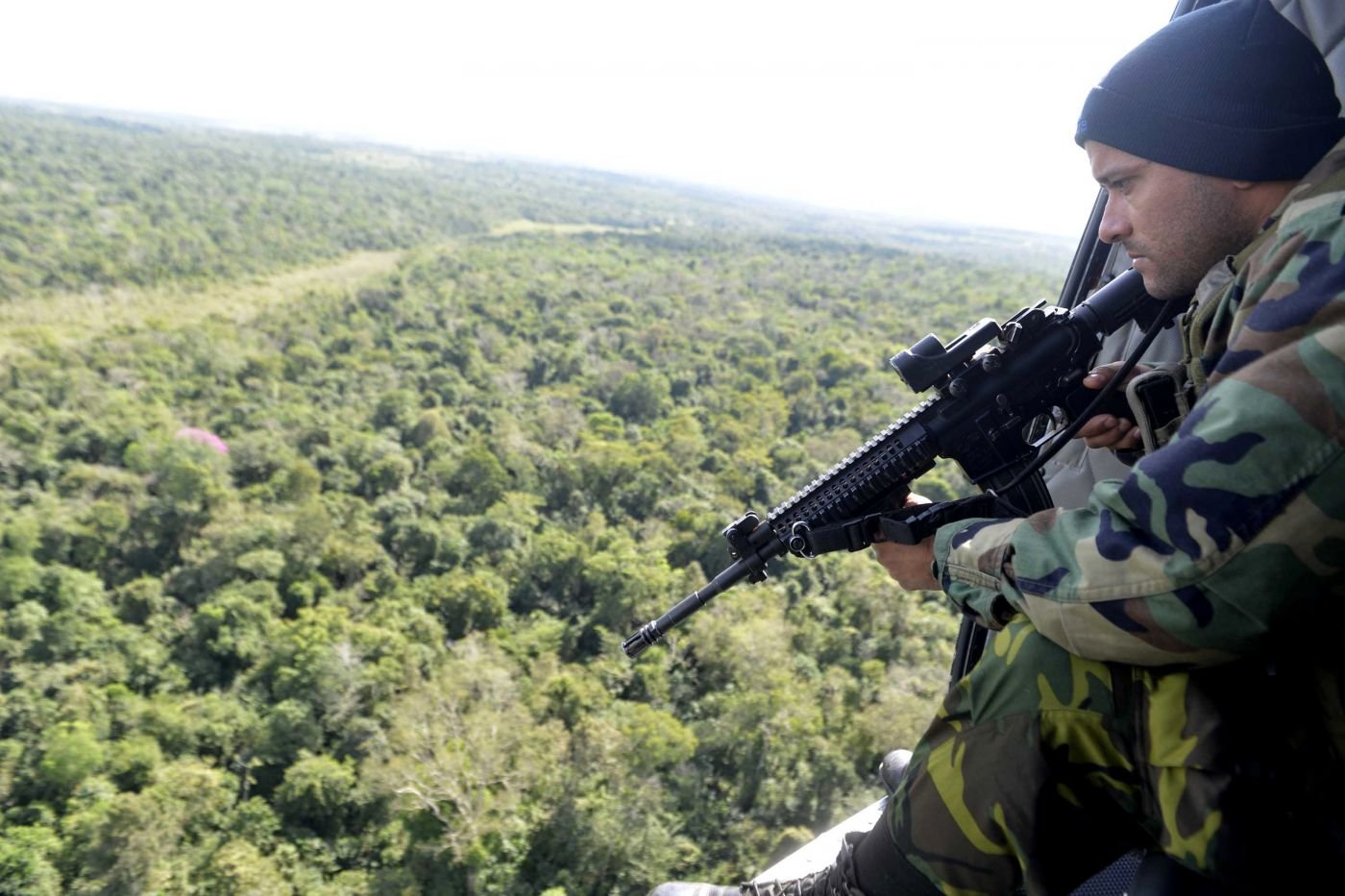On 4 November 2009, the United States announced they would donate US$1.39 million in equipment towards the formation of an elite unit of highly trained troops in the Paraguayan army. Backed by US funding (sources put the total amount of the expedition at US$3 million) and training from SOUTHCOM, the troops are trained in counterterrorism strategies and are to be equipped with the latest gear and technology. Yet in spite of their training as counter-terrorism experts, how and why they are used will be up to the discretion of Paraguayan authorities, according to Liliana Ayalde, the US ambassador to Paraguay.
According to ABC, a leading Asunción-based daily, Ayalde said that the US is willing to offer advising and other help, but only should Paraguay request it. How Paraguayan President Fernando Lugo and the military (which some analysts believe Lugo only has a tenuous control of) will utilize the troops remains to be seen. Paraguay is emerging from an abrupt shift in its top ranks. During the week of 2 November 2009, president Lugo replaced the commanders of the Paraguayan Army, Navy, and Air Force. Talks of a coup started swirling about, to which Lugo immediately denied.
The actual use of the troops aside, the creation of this unit is a good sign for US-Paraguay relations for a number of reasons. Firstly, it shows that there are not any lingering hard feelings that will seriously impede diplomatic progress after president Lugo rejected the presence of 500 US military personnel in Paraguay back in September.
Secondly, the creation of the unit helps emphasize a mutual understanding of the need to combat terrorist groups in region. The US has a vested interest in keeping Paraguay terrorism-free. The loosely regulated tri-border area, particularly Ciudad del Este, is listed as a rising area of activity for terrorist activity such as training and money laundering, and US authorities have been monitoring the region for signs of Hezbollah, Hamas, and other terrorist cells. Thus, any aid that is used to combat terrorist forces in Paraguay may be money well spent, and Paraguay’s recent history battling what are considered homegrown terrorist organizations such as the Paraguayan People’s Army (EPP) is likely seen favorably by Washington.
But perhaps most importantly, it is the proposed way in which the soldiers are to be used that is the greatest marker of progress. How, when, and against whom the soldiers are to be used is completely at Paraguay’s discretion. This marks a positive change in US diplomacy for military matters in the region. Rather than giving condition-based aid, the creation of this elite force and its use sends the message that the US is backing a country’s leadership and trusting in its ability to do what is best in its own territory. This demonstration of respect for Paraguayan sovereignty will benefit the US as they continue to mend relations with the entire region.
Interestingly, Brazil has been quiet about the deal. Given the two nations’ proximity to one another, terrorist organizations operating in Paraguay in many ways pose a greater threat to Brazil than to the United States. Brazil shares a long, unpatrolled border whose porosity is a haven for arms and drug smuggling, which poses a direct threat to security concerns in Brazilian cities thousands of miles away. Earlier this year, Brazilian President Lula Inácio Lula da Silva demonstrated his commitment to strengthening Paraguayan-Brazilian ties with the concession of $240 million in payments to Paraguay for energy generated at Itaipú, a joint Brazilian-Paraguayan venture located near the tri-border area. Continued mutual cooperation is essential to any successful plan at combating terrorism. The message the US is sending is a step in the right direction.

Reply